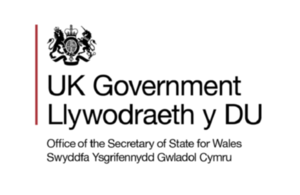UK becomes Associate Member of south-east Asian Education Organisation
UK’s membership of the south-east Asian Ministers of Education Organisation (SEAMEO) will help to strengthen its education initiatives in south-east Asia, said the Secretary of State for Wales, David Jones as he headed the UK’s delegation to the Council’s 47th conference in Vietnam today (20 March).

The UK has become an Associate Member of the SEAMEO – an international organisation established among governments of south-east Asian countries to promote regional cooperation in education, science and culture.
The membership will allow the UK to reinforce its existing relationships with south-east Asia’s education network, and to cultivate new regional education links to bring mutual prosperity to the SEAMEO member nations.
The Secretary of State spoke on behalf of the UK Government at the SEAMEO summit in Hanoi where he highlighted the occasion of the UK’s accession to the SEAMEO, and the benefits the membership will have.
He said:
Education forms a central pillar in the relationship we already enjoy with the individual member states of SEAMEO. Our membership will reinforce that work, but will also help the UK to develop its education initiatives on a regional basis, taking a lead from the way ASEAN member states learn from one another and inspire one another.
The UK has a very attractive offer to make on education. A degree from a British University offers a world renowned standard and a rich cultural experience. We want to use the breadth and quality of our education system to further strengthen our links with south-east Asia.
And our associate membership of SEAMEO will help us to achieve this aspiration. The education links between the UK and Vietnam are already very strong. We are already delivering an ambitious programme on vocational training and have agreed to launch a world-class UK-Vietnam university this year in Danang.
But we want to do more. We will continue to seek opportunities to work, not just with SEAMEO, but across south-east Asia, with the ultimate aim of sharing in the wider benefits that this collaboration brings.
During the visit to Vietnam, Mr Jones also met with Director General Tuan at the Ministry of Education and Training where they discussed education links between the UK and Vietnam, and further opportunities for collaboration.
He was joined in the meeting with Professor Brian Foxon, Director of International Operations at Glyndŵr University who is representing the interests of all Welsh universities on this visit. Here, they took the opportunity to highlight the work of Welsh universities and the offer they have to make for Vietnamese students looking to study in the UK.
Swansea University is already collaborating with Vietnam universities. Its English Language Training Services team has already provided training for 25 Vietnamese ministry officials during summer 2012, with the prospect of further training to take place. Glyndŵr University also has close links with the country and has a Memorandum of Understanding on Higher Education opportunities with the Vietnamese Television and Media Corporation.
Professor Foxon said:
This visit of the Secretary of State for Wales to the SEAMEO conference sends a clear signal to the region that British universities are really in the business of forging strong partnerships with local universities and businesses.
The financial impact on British universities from these relationships is considerable. His visit has therefore opened up avenues for productive dialogue with government agencies, regional businesses and education partners.
Mr Jones added:
The UK, especially Welsh universities, value international partnerships. They are increasingly important when it comes to research and innovation and we are eager to identify additional partnerships between the Vietnam National University and universities in Wales.
The UK currently attracts 13% of the international higher education student market – second only to the USA. In 2011/12, there were 435,235 international students studying in the UK, of which 302,680 were from outside the EU.
Immigration Minister, Mark Harper said:
International students make an important contribution to our economy and sponsored student visa applications for the university sector increased by 3% last year. In Vietnam alone, more than 12,000 entry clearance visas were issued last year and more than a quarter of those were study visas.
There is no limit to the number of students that can visit here; universities can apply their own language tests; and graduates can stay and work if they get a graduate level job. The UK remains open to the brightest and the best students from across the world.